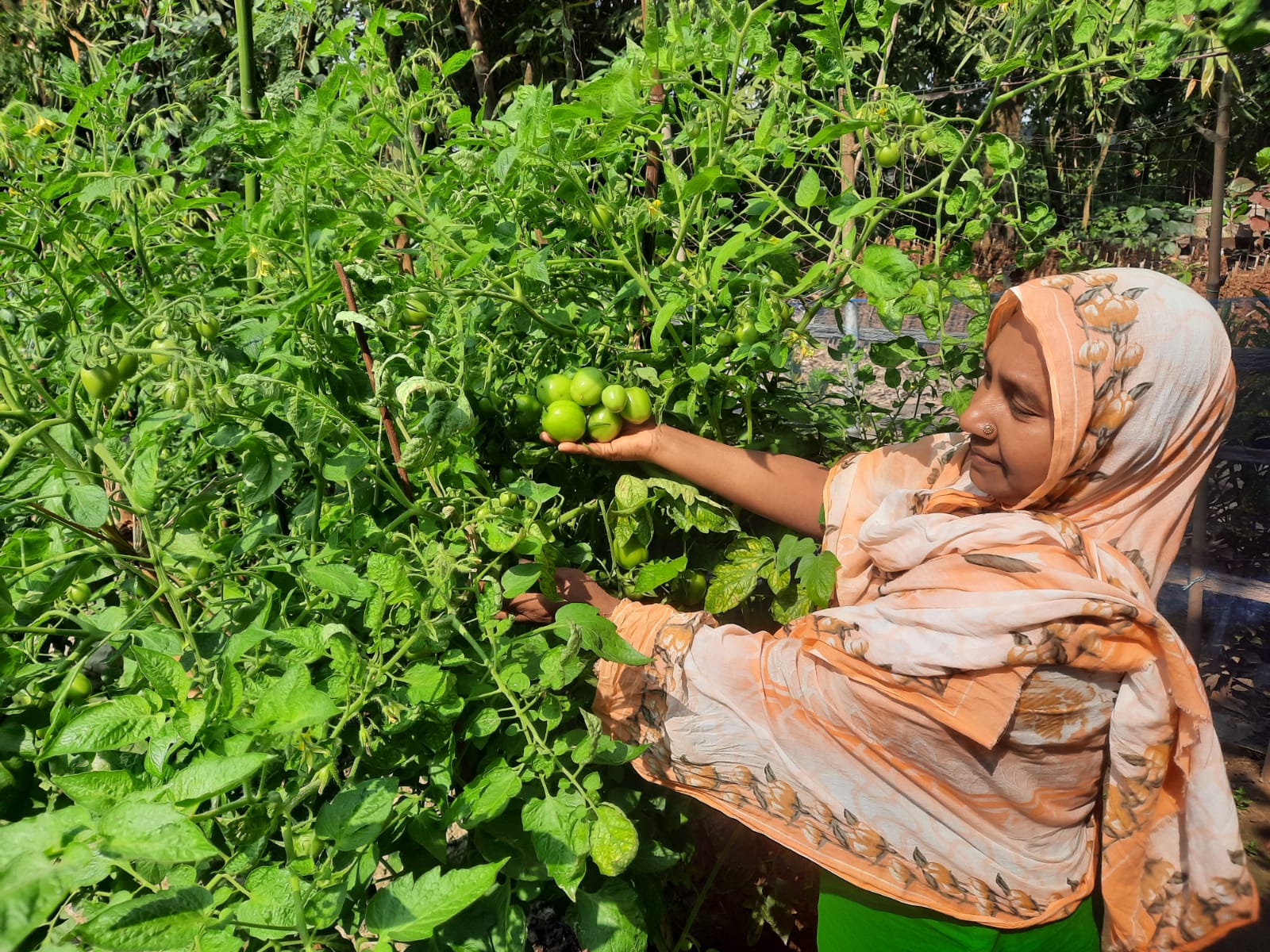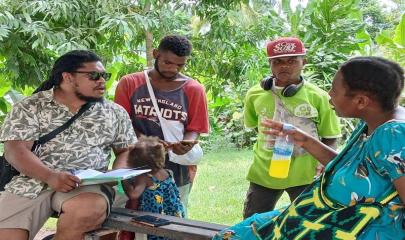Sowing Commercial Interest in Homestead Gardening


As leaders of the Feed the Future Bangladesh Nutrition Activity, we have a large, multifaceted mandate that includes increasing consumption of diverse foods; empowering women and adolescents; increasing adoption of improved water, sanitation and hygiene behaviors; and promoting environmentally friendly solutions. Engaging the private sector has been integral to our success, fueled by shared benefit principles. And for one of our main initiatives, it’s doing so literally where people live.
Since 2020, our Activity has teamed with agri-input suppliers and retailers to establish nearly 800 “demonstration” homestead gardens in three regions of Bangladesh with historically high malnutrition and poverty levels. These gardens, averaging 40 square meters in size, may seem humble, but they are a nexus for several Feed the Future goals: good nutrition, women’s empowerment and environmentally safer horticulture. These demonstration gardens have motivated nearly 45,000 households to start their own homestead gardens, benefiting nearly 200,000 rural Bangladeshis. Throughout, the private sector has been a dynamic partner, adding energy, ideas, and credibility to our efforts — and of course, a regular supply of seeds, new technologies, and other inputs.
Originally published in Agrilinks, October 3, 2022
Authors: Ramakrishnan Ganesan and Md. Ashraful Islam
Read More
Food Security & Agriculture in South & Central Asia

Does a Pay-For-Results Approach Advance Agricultural Development?
Abt’s decade-long evaluation of AgResults explains how its approach works (and doesn’t) to spur uptake of commercial innovations in emerging economies.

Smoke-Free Cocoa Opens Premium Export Opportunities for PNG
A low-cost solar innovation is raising incomes, reducing labour, and putting Papua New Guinea’s smallholder cocoa growers on the premium export map.

Going Local in Climate Finance Flows
Abt’s targeted support to national and regional institutions enables them to secure funding directly from the Green Climate Fund, making it more responsive, equitable, and effective.

The 29th Conference of the Parties to the United Nations Framework Convention on Climate Change (COP29)
Abt will join governments, the private sector, and civil society at the 29th Conference of the Parties to the United Nations Framework Convention on Climate Change (COP29) this November to accelerate climate action.
